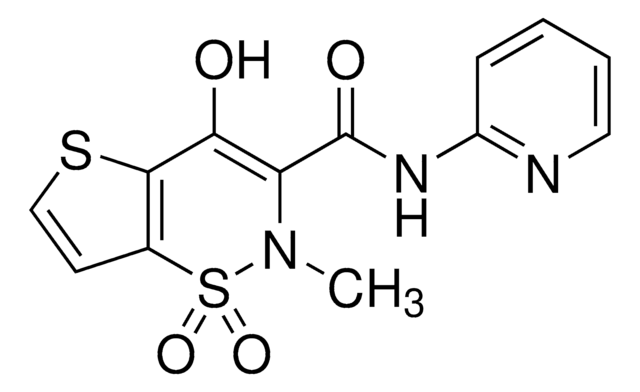PHR1434
Sodium Metabisulfite
Pharmaceutical Secondary Standard; Certified Reference Material
Synonym(s):
Sodium metabisulfite, Sodium disulfite, Sodium pyrosulfite
About This Item
Recommended Products
grade
certified reference material
pharmaceutical secondary standard
Quality Level
Agency
traceable to USP 1614396
API family
sodium metabisulfite
CofA
current certificate can be downloaded
technique(s)
HPLC: suitable
gas chromatography (GC): suitable
mp
>300 °C (lit.)
application(s)
pharmaceutical (small molecule)
format
neat
storage temp.
2-30°C
SMILES string
[Na+].[Na+].[O-]S(=O)S([O-])(=O)=O
InChI
1S/2Na.H2O5S2/c;;1-6(2)7(3,4)5/h;;(H,1,2)(H,3,4,5)/q2*+1;/p-2
InChI key
HRZFUMHJMZEROT-UHFFFAOYSA-L
Looking for similar products? Visit Product Comparison Guide
General description
Application
Analysis Note
Other Notes
Footnote
Signal Word
Danger
Hazard Statements
Precautionary Statements
Hazard Classifications
Acute Tox. 4 Oral - Eye Dam. 1
Supplementary Hazards
Storage Class Code
13 - Non Combustible Solids
WGK
WGK 1
Flash Point(F)
Not applicable
Flash Point(C)
Not applicable
Choose from one of the most recent versions:
Already Own This Product?
Find documentation for the products that you have recently purchased in the Document Library.
Customers Also Viewed
Our team of scientists has experience in all areas of research including Life Science, Material Science, Chemical Synthesis, Chromatography, Analytical and many others.
Contact Technical Service













